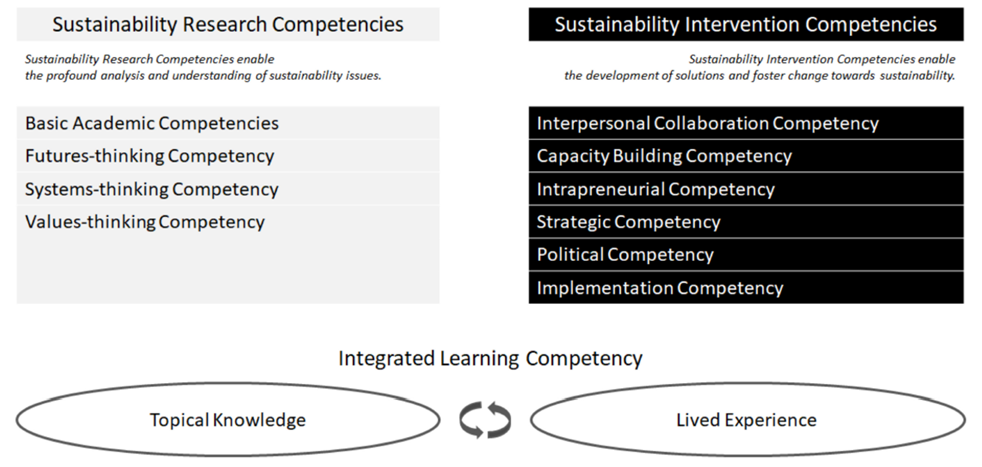How can we support organizations in their efforts to transform into a sustainable one? What competencies are needed to navigate on new waters, without having a clear point in the future to navigate to? This blog gives a quick introduction to the academic research, done on this topic and connects it to how this knowledge can support organizations in their efforts.
Academical background
As the need for sustainable development (SD) became more urgent and aware, the field of science for SD has emerged as well. Over the last 20 years, a growing group of scientists and universities have researched and published in different sub-fields of SD. Among them, is the field of competencies for SD. Within this sub-field, a distinction can be made between learning competencies in academic settings and the need for competencies in professional settings. Wiek et al. (2011) is seen as the most influential publication that introduced a set of competencies that are used in academic settings. As more studies were done, more competencies were defined. In 2022, Venn et al. published ‘Competencies of Sustainability Professionals. The study is relevant because it can be used in many organizations that are looking for guidelines for the development of their employees.
Venn et al. introduced 3 sets of competencies; Sustainability Research Competencies, Sustainability Intervention Competencies, and Integrated learning Competency (see Figure 1).

Usage in practice
How can this knowledge be brought into practice? Firstly, it is important to mention that not all competencies are needed in all roles in an organization. For example, some roles have a higher demand for the political competency, whereas in other roles the future-thinking competency is needed. A diverse team is crucial to cover all competencies in your organization.
Secondly, fostering a learning culture is an effective way to create the right conditions to develop those competencies: Together with colleagues, we found 8 recommendations to foster a learning culture for Sustainable Development in Municipalities.

Thirdly, align organizational strategies, with sustainability efforts and education. As logical as it sounds, crucial is that an organization is aware of the social and ecological output, within the organization as well as in the value chain of this organization. Sustainability strategies are often put in place without knowing where they will have an impact. A system perspective (systems-thinking is one of the crucial competencies) is needed to align the organizational core business with the sustainability efforts. Education and other forms of personal development can be useful tools to support the alignment between strategy and implementation in practice.
Call to action
How is your organization building competencies for sustainable development? Which of the 8 recommendations are you already bringing into practice? And where do you see the potential for improvement?
Share with us, what your thoughts and solutions are to step up the ladder and move towards a sustainable business.